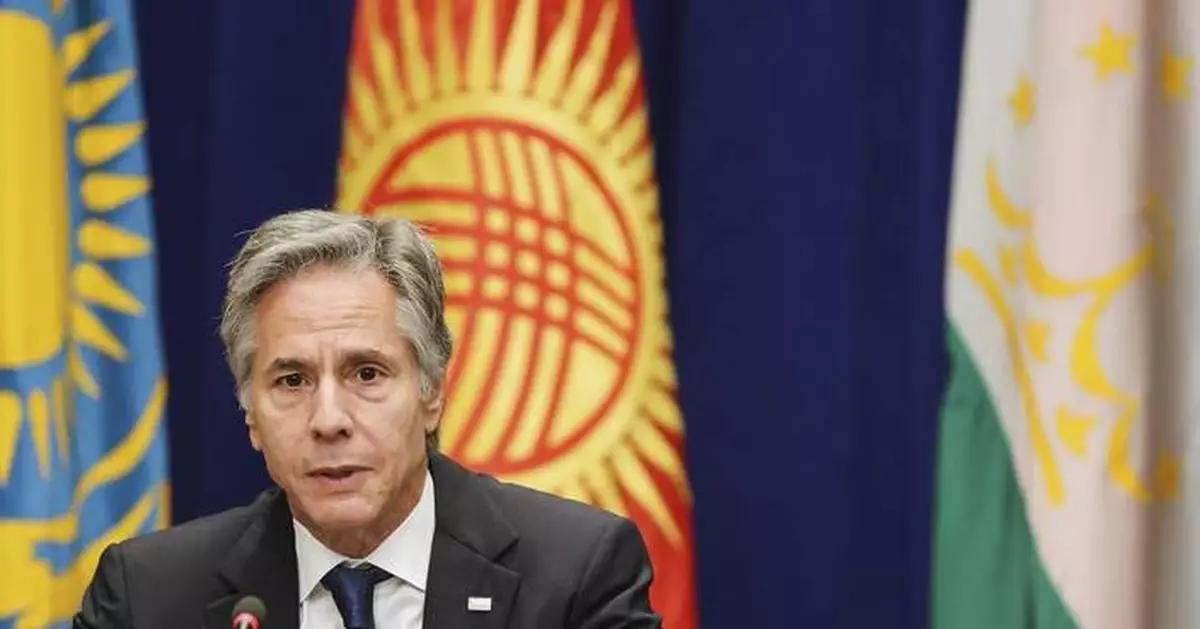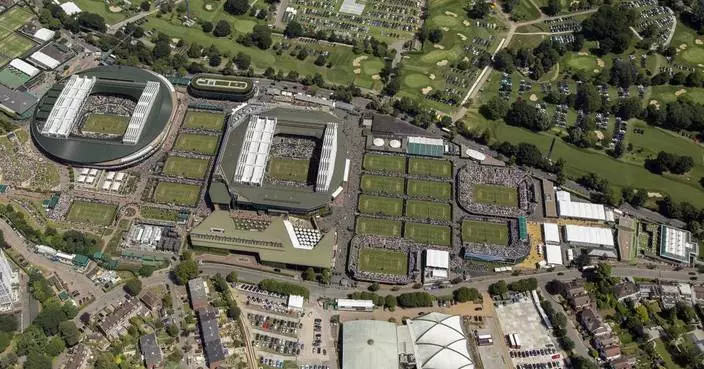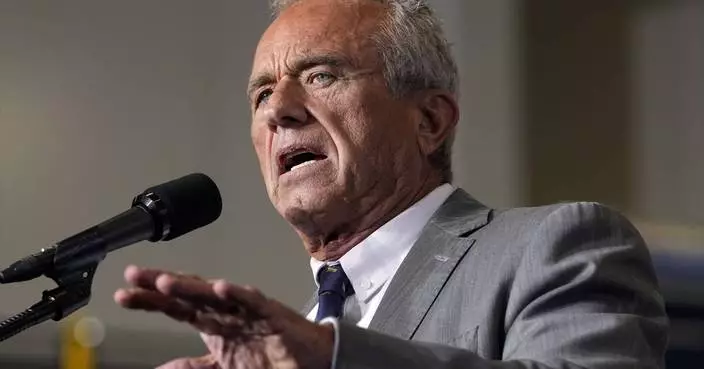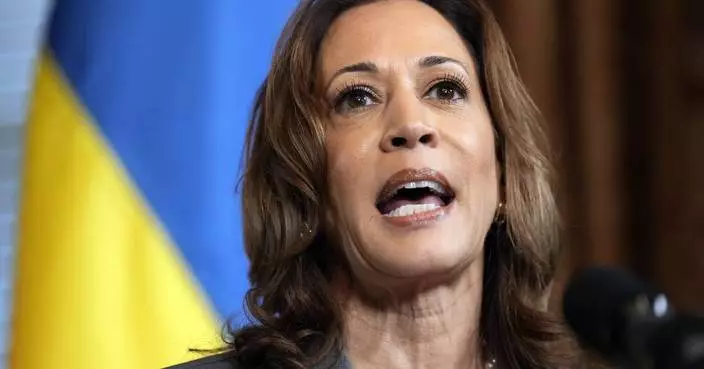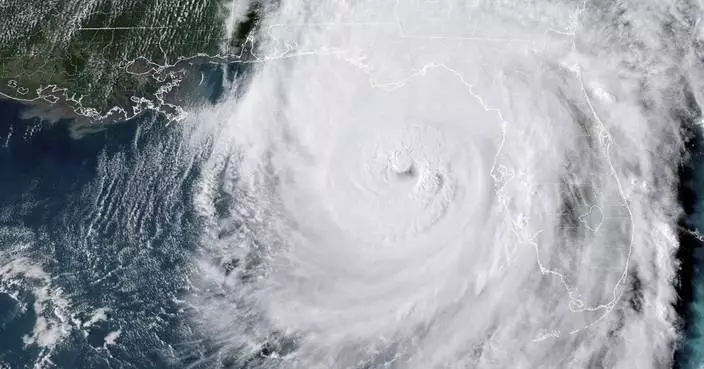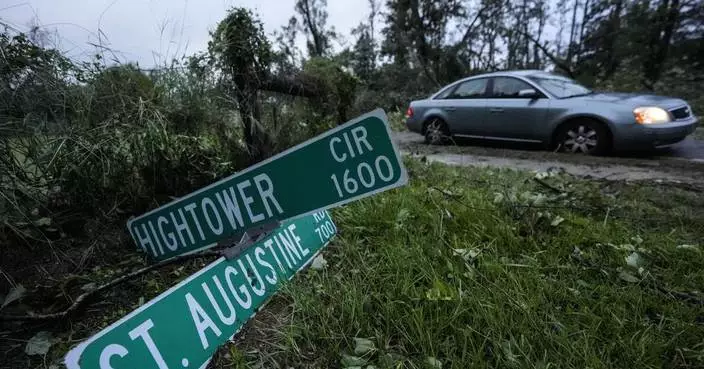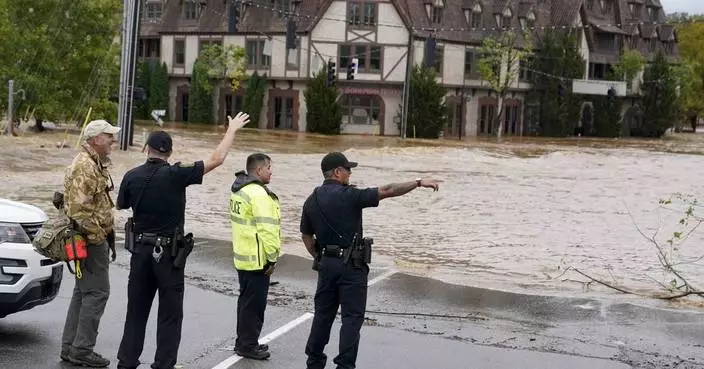NEW YORK (AP) — President Joe Biden's administration headed into the annual U.N. General Assembly gathering of world leaders this week with high hopes that he could cement his legacy as an international statesman during escalating conflicts in the Middle East and Ukraine.
Yet five days of frantic diplomacy focused mainly on preventing the Israel-Hezbollah crisis from exploding into a full-scale war has yielded little, if any, results — and prospects for peace have further dimmed.
Despite a proposal from the U.S., France and other allies for a temporary cease-fire along the border with Lebanon, Israeli Prime Minister Benjamin Netanyahu delivered a defiant speech Friday to the General Assembly, vowing to keep up operations against Hezbollah until tens of thousands of Israeli citizens displaced by rocket attacks can return home.
As Netanyahu spoke, Israel launched a massive strike on Hezbollah’s main headquarters in Beirut that targeted the group's leader Hassan Nasrallah. Netanyahu then cut short his already-truncated visit to New York and headed home without meeting U.S. officials.
“Israel has the right to defend itself against terrorism. The way it does so matters,” U.S. Secretary of State Antony Blinken told reporters Friday, declining to outright criticize Israel for its latest strike. The Pentagon and the White House National Security Council said the U.S. did not get advance warning.
“We believe the way forward is through diplomacy not conflict. The path to diplomacy may seem difficult, as we see in this moment, but it is there,” Blinken said.
Netanyahu's speech and his abbreviated trip — which lacked any meetings with leaders from Israel’s largest and most important backer, the United States — underscored the limits of American influence. Many believe U.S. sway in the region has been waning since Israel's war with Hamas, another Iranian-backed militant group, began nearly a year ago.
Critics of the administration’s handling of the growing Middle East conflict say Biden and his team now find themselves contending with an uncomfortable dynamic they created themselves: A split-screen in which top administration officials are pleading for a cease-fire as Israel continues to decisively go after top Hezbollah commanders that it blames for driving tens of thousands of Israelis from their homes near the border with Lebanon.
“On the same day the U.S. was begging Hezbollah for a cease-fire, Israel took out Hezbollah’s command center,” said Richard Goldberg, a senior adviser at the Foundation for the Defense of Democracies and a former National Security Council staffer on the Iran desk during the Trump administration. “The contrast brings the current state of American weakness into sharp relief.”
This week began with Biden’s top national security aides working to build support for a 21-day Israel-Hezbollah cease-fire that they hoped might also breathe new life into stalled efforts to secure a truce in Gaza.
Blinken met with European and Gulf Arab foreign ministers, along with Netanyahu's top strategic adviser, Ron Dermer. Brett McGurk and Amos Hochstein, the White House’s chief interlocutors with Israel and Lebanon since the Oct. 7 attacks on Israel by Hamas launched the war in Gaza, held similar talks in New York to win support for the plan.
After three days of intense talks — punctuated by a brief spat between the United States and France over the timing — the proposal was presented late Wednesday.
The Americans were particularly perturbed by France calling an emergency U.N. Security Council session on Lebanon for Wednesday evening — at which the French foreign minister previewed the as-yet unfinished proposal — while at the same time Biden was hosting a reception for world leaders at the Metropolitan Museum of Art. That effectively forced the U.S. to unveil it before many officials believed it was ready.
Nearly four hours after that Security Council meeting began, the White House released the plan. U.S. officials then offered upbeat assessments of its prospects over the objections of some in the Biden administration who had urged caution, according to several people familiar with the negotiations who spoke on condition of anonymity to detail private discussions.
After consulting with senior Israeli officials, Blinken and other diplomats had expected Israel to at least welcome, if not endorse, the plan. Instead, Netanyahu appeared to reject it when he arrived in New York on Thursday. He later clarified that Israel supports the goals of the cease-fire.
Biden administration officials have been pressing for approval of the proposal since it was announced Wednesday night, but their hopes have waned since. No U.S. officials had contact with Netanyahu when he was in New York.
In his U.N. speech Friday, the Israeli leader castigated much of the world for trying to push his country into accepting an untenable situation along its northern border.
“We’ll continue degrading Hezbollah until all our objectives are met,” he told the General Assembly, just before reports emerged that Israeli had struck Hezbollah’s headquarters. “I’ve come here today to say: Enough is enough.”
Having returned to Washington on Wednesday night, Biden ordered the Pentagon on Friday “to assess and adjust as necessary U.S. force posture in the region to enhance deterrence, ensure force protection, and support the full range of U.S. objectives," the White House said.
Madhani reported from Rehoboth Beach, Del.
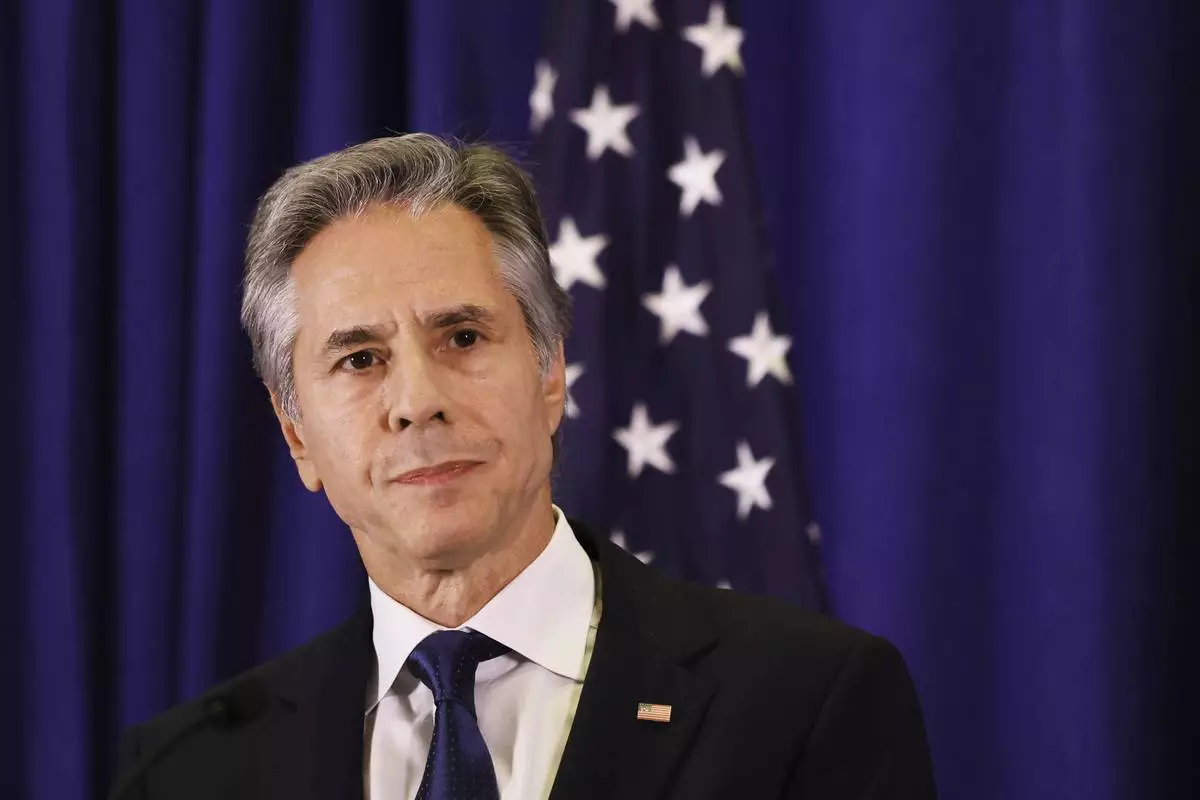
U.S. Secretary of State Antony J. Blinken during a news conference, Friday, Sept. 27, 2024, in New York. (AP Photo/Heather Khalifa)
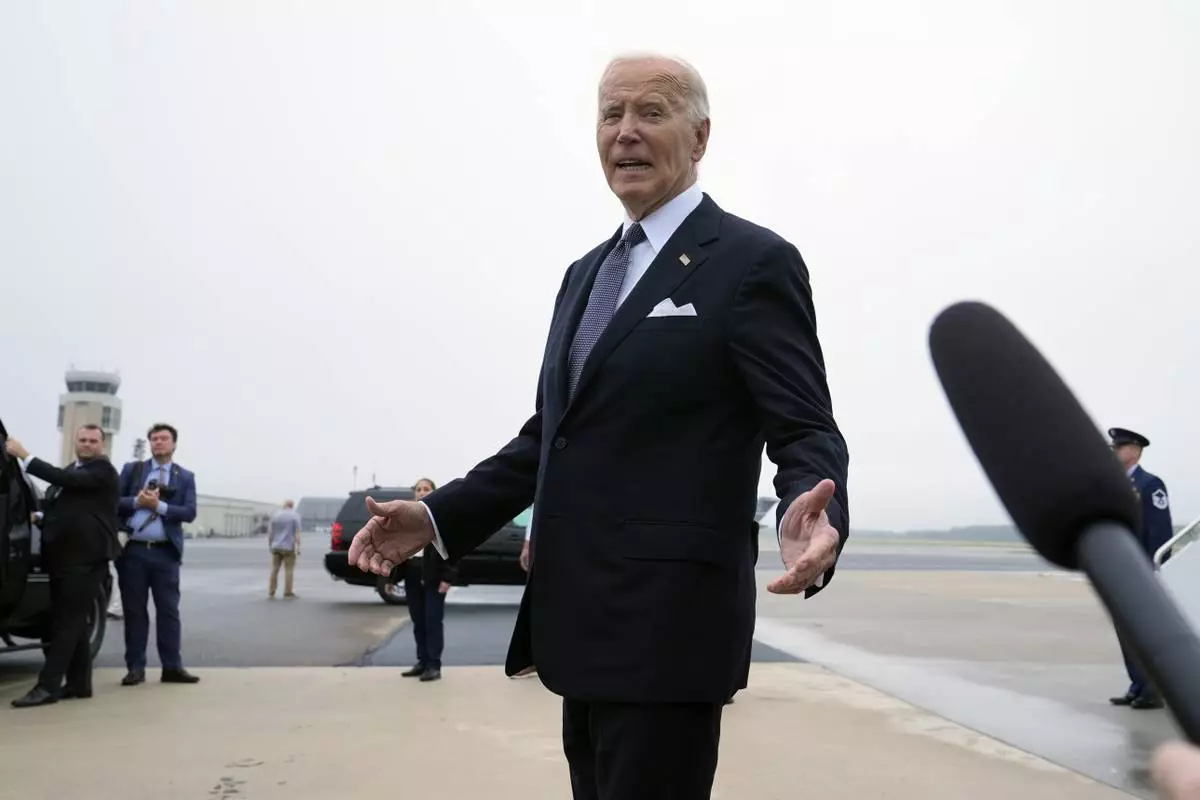
President Joe Biden speaks the the media after stepping off Air Force One at Dover Air Force Base in Delaware, Friday, Sept. 27, 2024, to spend the weekend at his beach home in Rehoboth Beach, Del. (AP Photo/Susan Walsh)
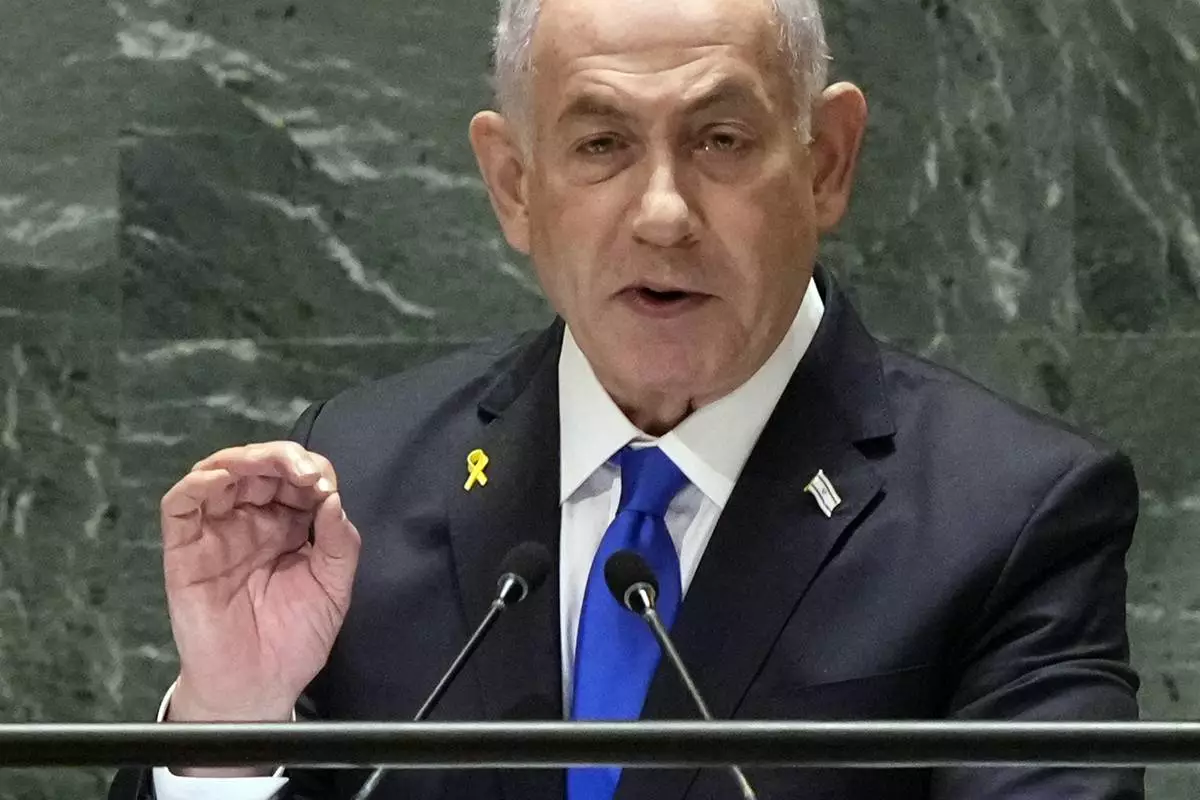
Israel Prime Minister Benjamin Netanyahu addresses the 79th session of the United Nations General Assembly, Friday, Sept. 27, 2024. (AP Photo/Richard Drew)
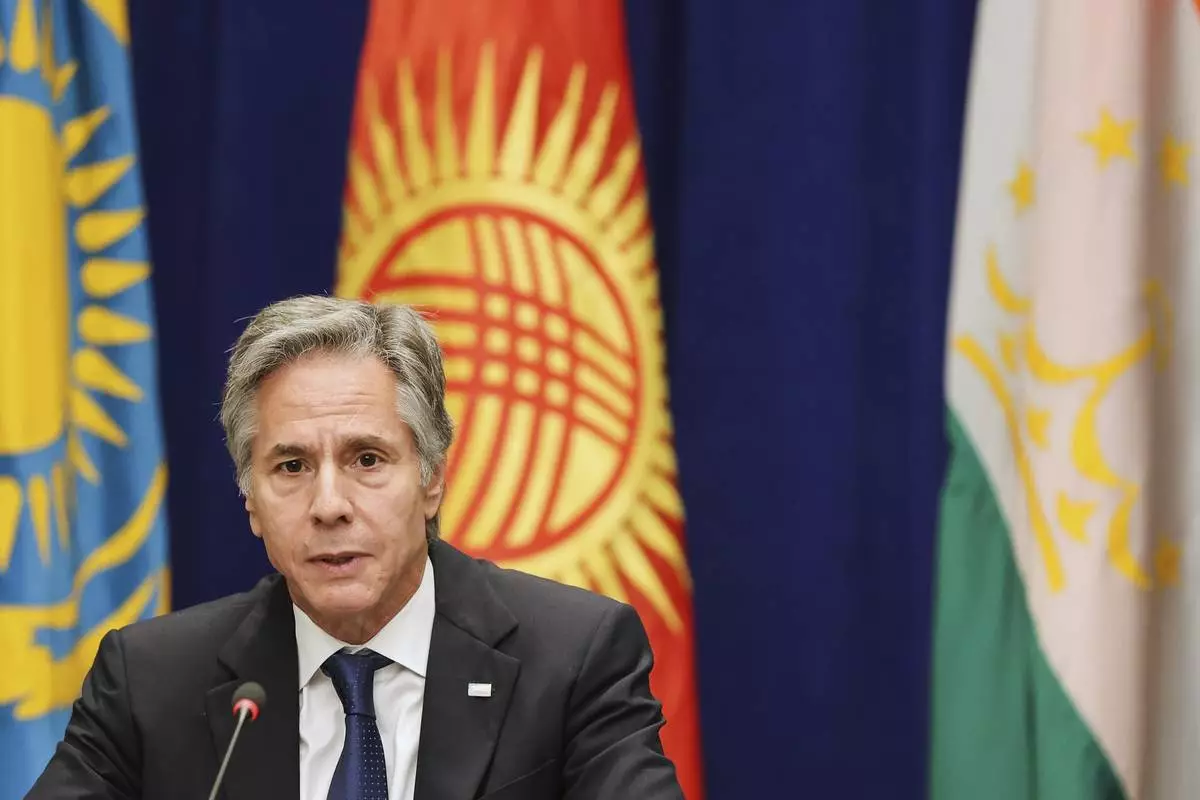
U.S. Secretary of State Antony J. Blinken speaks during a meeting with the Foreign Ministers of Kazakhstan, Kyrgyz Republic, Tajikistan, Turkmenistan, and Uzbekistan, Friday, Sept. 27, 2024, in New York. (AP Photo/Heather Khalifa, Pool)
BEIRUT (AP) — The Israeli military struck Hezbollah’s headquarters in Beirut on Friday in a series of massive explosions that targeted the leader of the militant group and leveled multiple high-rise apartment buildings. The biggest blast to hit the Lebanese capital in the past year appeared likely to push the escalating conflict closer to full-fledged war. At least six people were killed and 91 were wounded, Lebanon's health ministry said.
Hezbollah leader Hassan Nasrallah was the target of the strikes on the group's headquarters, according to two people familiar with the matter who requested anonymity, including one U.S. official. The Israeli army declined to comment on who it was targeting. It was not immediately clear if Nasrallah was at the site, and Hezbollah did not comment on the report.
The death toll is likely to rise significantly as teams are still combing through the rubble of six buildings.
After the strikes, Prime Minister Benjamin Netanyahu abruptly cut short a visit to the United States to return home. Hours earlier, he addressed the U.N., vowing that Israel’s intensified campaign against Hezbollah over the past two weeks would continue — further dimming hopes for an internationally backed cease-fire.
News of the blasts came as Netanyahu was briefing reporters after his U.N. address. A military aide whispered into his ear, and Netanyahu quickly ended the briefing.
Israeli army spokesman Rear Adm. Daniel Hagari said the strikes targeted the main Hezbollah headquarters, saying it was located underground beneath residential buildings.
The series of blasts at around nightfall reduced six apartment towers to rubble in Haret Hreik, a densely populated, predominantly Shiite district of Beirut’s Dahiyeh suburbs, according to Lebanon’s national news agency. A wall of billowing black and orange smoke rose into the sky as windows were rattled and houses shaken some 30 kilometers (18 miles) north of Beirut.
Footage showed rescue workers clambering over large slabs of concrete, surrounded by high piles of twisted metal and wreckage. Several craters were visible, one with a car toppled into it. A stream of residents carrying their belongings were seen fleeing along a main road out of the district.
Israel provided no immediate comment about the type of bomb or how many it used but the resulting explosion levelled an area greater than a city block. The Israeli army has in its arsenal 2,000 pound American-made “Bunker Buster” guided bombs designed specifically for hitting subterranean targets.
Richard Weir, crisis and weapons researcher with Human Rights Watch, said the blasts were consistent with that class of bomb.
Israel's air forces followed with a new set of strikes early Saturday shortly after an Israeli military spokesman warned residents of three buildings to evacuate, saying they were being used by Hezbollah.
To a degree unseen in past conflicts, Israel this past week has aimed to eliminate Hezbollah’s senior leadership. But an attempt to assassinate Nasrallah – successful or not – would be a major escalation. The Pentagon said the U.S. had no advance warning of the strikes.
Nasrallah has been in hiding for years, very rarely appearing in public. He regularly gives speeches, but always by video from unknown locations. The site hit Friday evening had not been publicly known as Hezbollah’s main headquarters, though it is located in the group’s “security quarters,” a heavily guarded part of Haret Hreik where it has offices and runs several nearby hospitals.
Four hours after the strike, Hezbollah had still not issued any statement referring to it. Instead, it announced that it had launched a salvo of rockets at the Israeli city of Safed, which it said was “in defense of Lebanon and its people, and in response to the barbaric Israeli violation of cities, villages and civilians.” The Israeli military said a house and a car in Safed were hit, and officials said a 68-year-old woman suffered mild shrapnel wounds.
Israel dramatically intensified its airstrikes in Lebanon this week, saying it is determined to put an end to more than 11 months of Hezbollah fire into its territory. The escalated campaign has killed more than 720 people in Lebanon, including dozens of women and children, according to Health Ministry statistics. A predawn strike Friday in the mainly Sunni border town of Chebaa killed nine members of the same family, the state news agency said.
The scope of Israel’s operation remains unclear, but officials have said a ground invasion to push the militant group away from the border is a possibility. Israel has moved thousands of troops toward the border in preparation.
The White House said President Joe Biden was ordering his national security team to assess if further action is needed to beef up security for American interests in the Middle East.
Biden was briefed by national security aides several times on Friday following the strike on Hezbollah’s headquarters. The president, according to the White House, “has directed the Pentagon to assess and adjust as necessary U.S. force posture in the region to enhance deterrence, ensure force protection, and support the full range of U.S. objectives.”
At the U.N., Netanyahu vowed to “continue degrading Hezbollah” until Israel achieves its goals. His comments dampened hopes for a U.S.-backed call for a 21-day truce between Israel and Hezbollah to allow time for a diplomatic solution. Hezbollah has not responded to the proposal.
Iranian-backed Hezbollah, the strongest armed force in Lebanon, began firing rockets into Israel almost immediately after Hamas’ Oct. 7 attack, saying it was a show of support for the Palestinians. Since then, it and the Israeli military have traded fire almost daily, forcing tens of thousands of people to flee their homes on both sides of the border.
An Israeli security official said he expects the campaign against Hezbollah would not last for as long as the current war in Gaza, because the military’s goals are much narrower.
In Gaza, Israel aims to dismantle Hamas’ military and political regime, but the goal in Lebanon is to push Hezbollah away from the border -- “not a high bar like Gaza” in terms of operational objectives, said the official, who spoke on the condition of anonymity due to military briefing guidelines.
The Israeli military said it carried out dozens of strikes around the south Friday, targeting targeting Hezbollah rocket launchers and infrastructure. It said Hezbollah fired a volley of rockets toward the northern Israeli city of Tiberias.
In the southern Lebanese city of Tyre, civil defense workers pulled the bodies of two women – 35-year-old Hiba Ataya and her mother Sabah Olyan – from the rubble of a building brought down by a strike.
“That’s Sabah, these are her clothes, my love,” one man cried out as her body emerged.
Israel says its accelerated strikes this week have already inflicted heavy damage on Hezbollah’s weapons capabilities and its fighters. But the group boasted a large arsenal of rockets and missiles and its remaining capacities remain unknown.
Hezbollah officials and their supporters remain defiant. Not long before the explosions Friday evening, thousands massed in another part of Beirut’s suburbs for the funeral of three Hezbollah members killed in earlier strikes, including the head of the group’s drone unit, Mohammed Surour.
Men and women in the giant crowd waved their fists in the air and chanted, “We will never accept humiliation” as they marched marched behind the three coffins, wrapped in the group’s yellow flag.
Hussein Fadlallah, Hezbollah’s top official in Beirut, said in a speech that no matter how many commanders Israel kills, the group has endless numbers of experienced fighters. He vowed that Hezbollah will keep fighting until Israel stops its offensive in Gaza.
“We will not abandon the support of Palestine, Jerusalem and oppressed Gaza,” Fadlallah said. “There is no place for neutrality in this battle.”
AP writers Tia Goldenberg at the United Nations, Abby Sewell in Beirut, Aamer Madhani in Rehoboth Beach, Delaware, and Zeina Karam in London, contributed to this report.
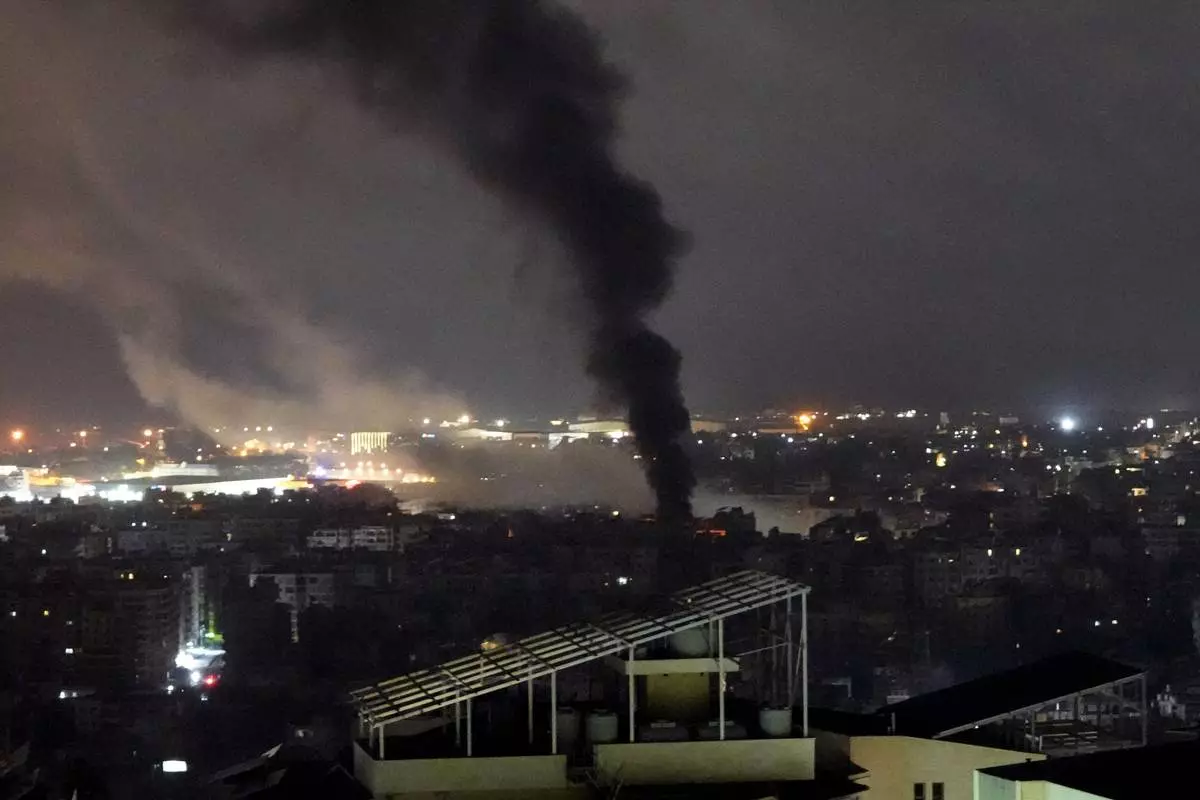
Smoke rises from Israeli airstrikes in Beirut's southern suburbs, Lebanon, Saturday, Sept. 28, 2024. (AP Photo/Hassan Ammar)
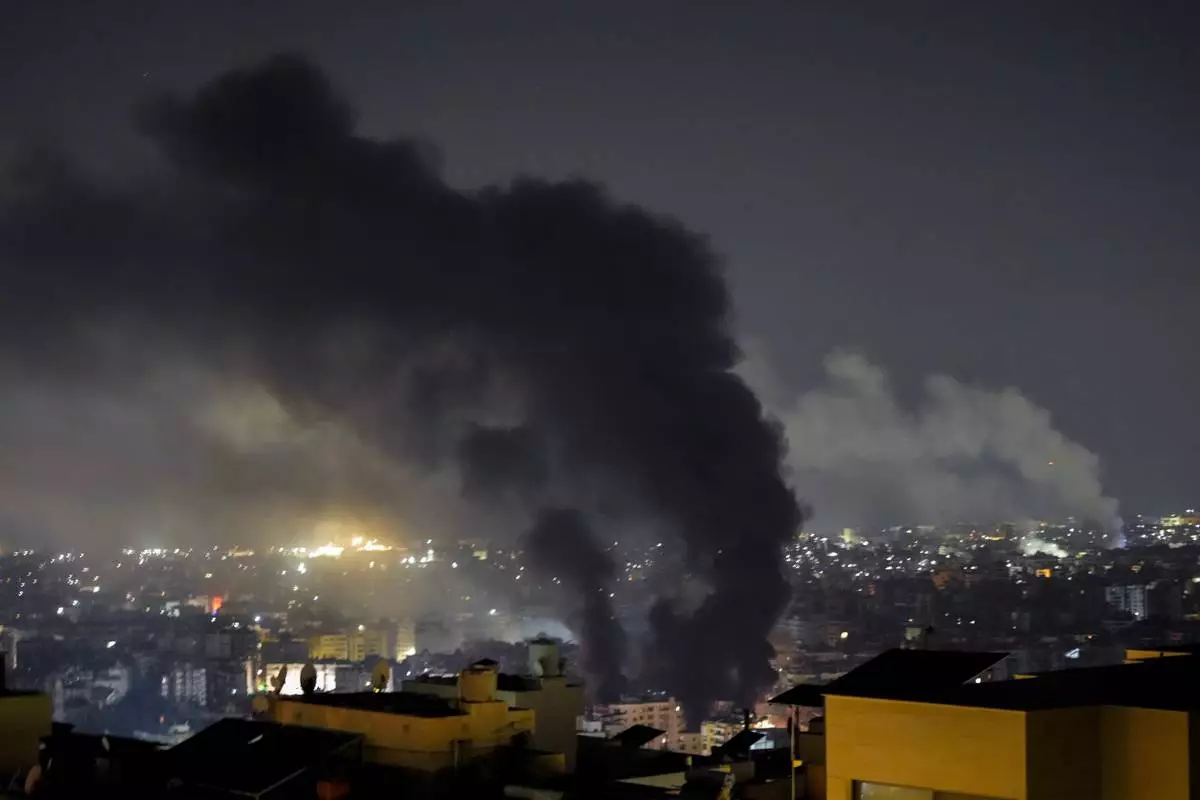
Smoke rises from Israeli airstrikes in Beirut's southern suburbs, Lebanon, Saturday, Sept. 28, 2024. (AP Photo/Hassan Ammar)
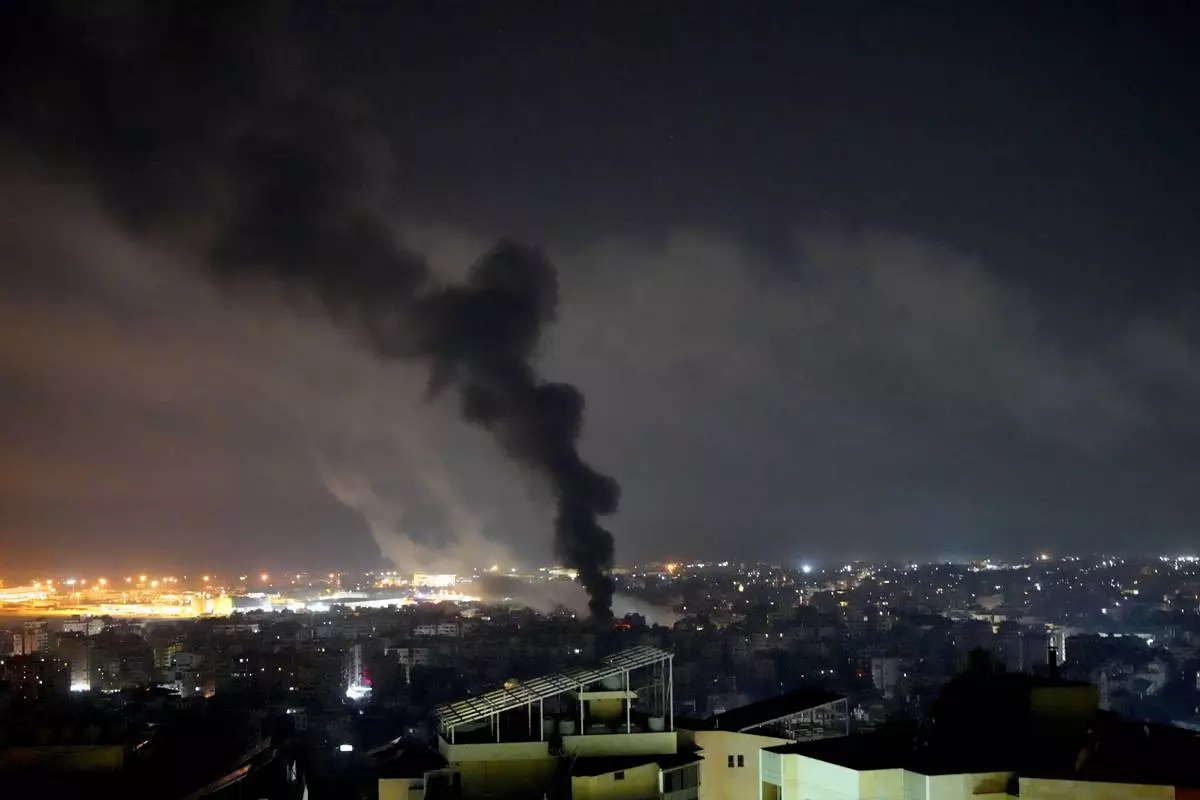
Smoke rises from Israeli airstrikes in Beirut's southern suburbs, Lebanon, Saturday, Sept. 28, 2024. (AP Photo/Hassan Ammar)
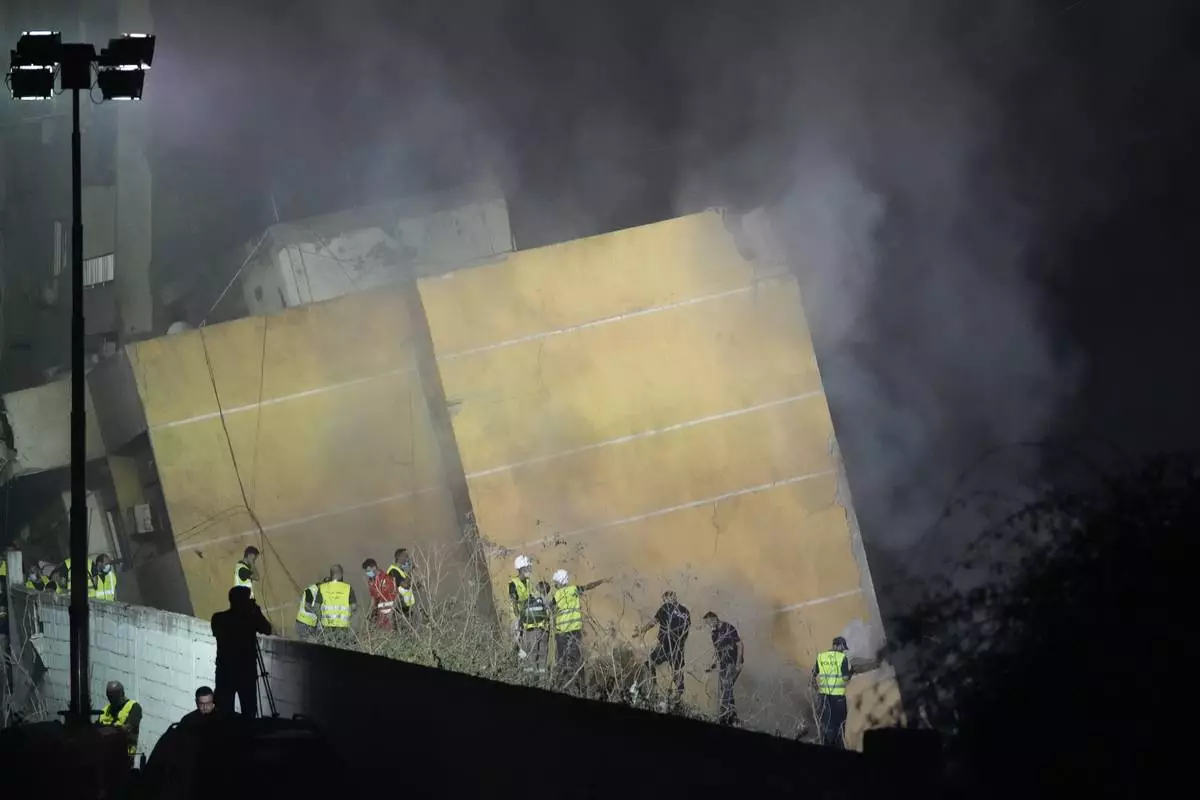
Rescuers gather as smoke rises from a collapsed building at the site of an Israeli airstrike in Beirut's southern suburbs, Friday, Sept. 27, 2024. (AP Photo/Hassan Ammar)
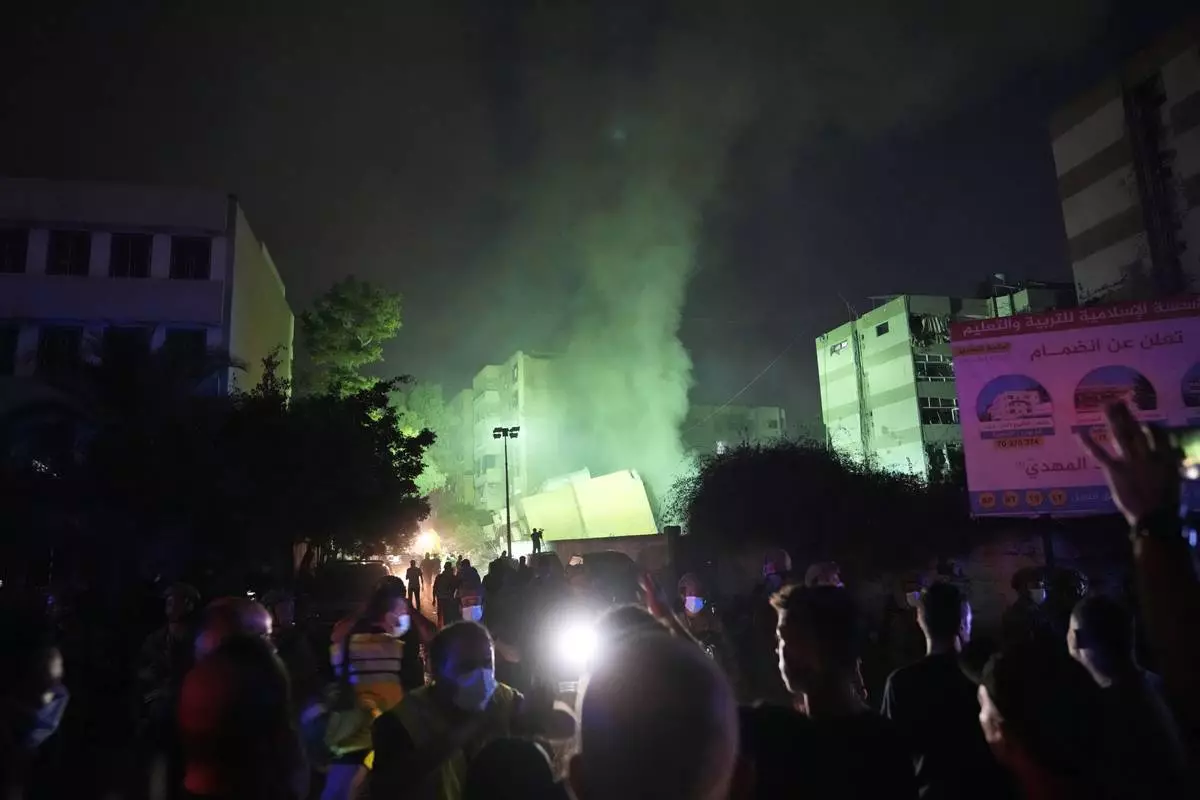
People gather as smoke rises from a collapsed building at the site of an Israeli airstrike in Beirut's southern suburbs, Friday, Sept. 27, 2024. (AP Photo/Hassan Ammar)
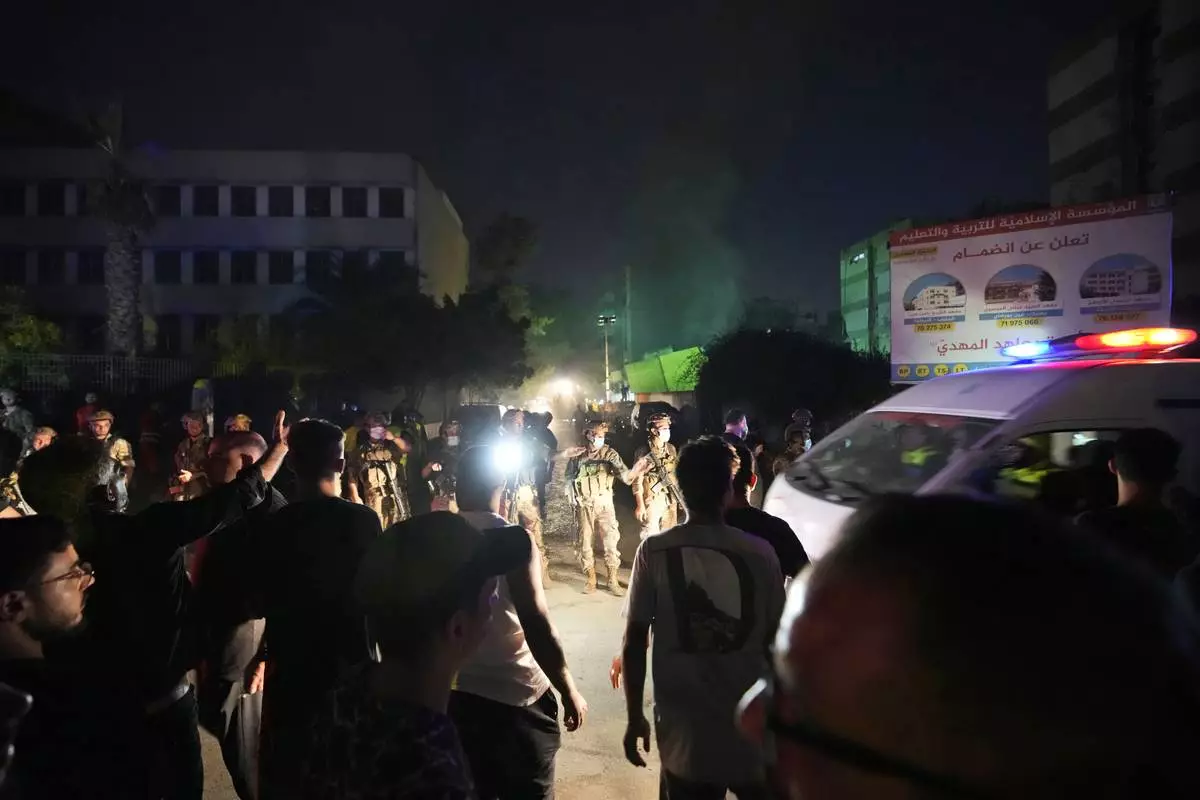
Rescuers arrive near the site of an Israeli airstrike in Beirut's southern suburbs, Friday, Sept. 27, 2024. (AP Photo/Hassan Ammar)
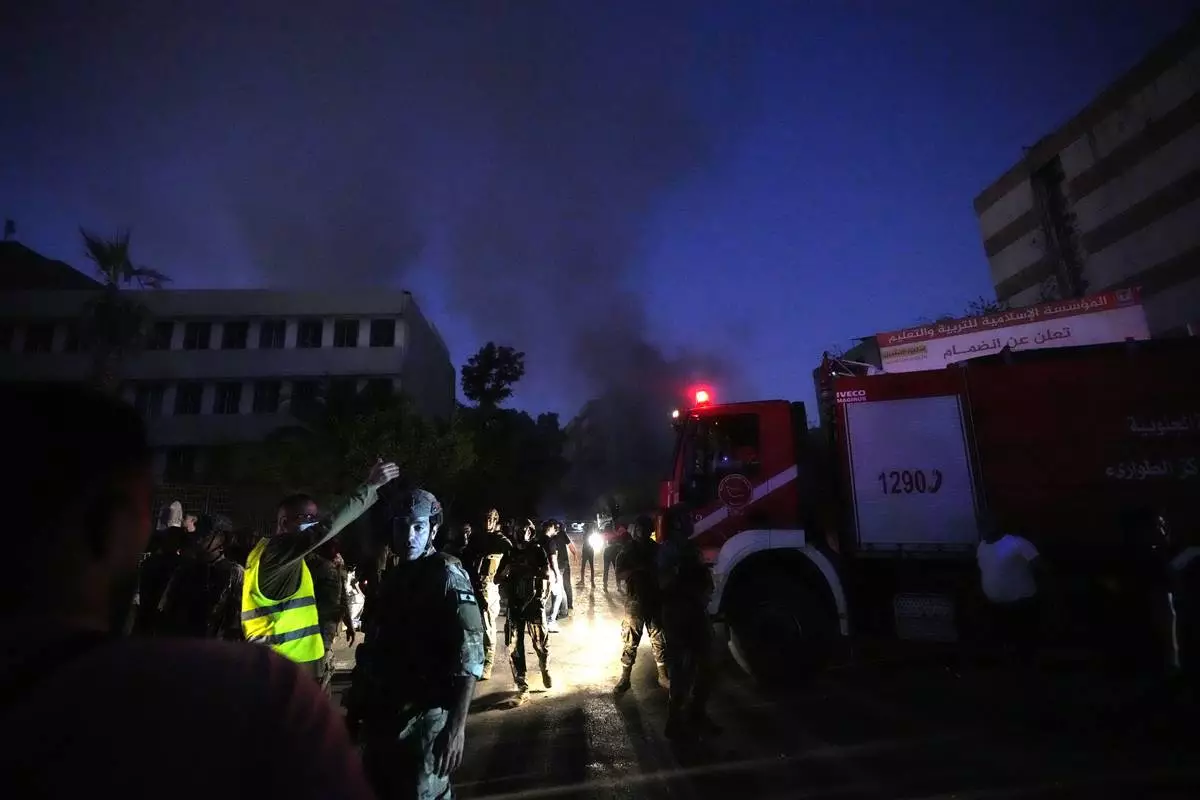
Rescuers arrive near the site of an Israeli airstrike in Beirut's southern suburbs, Friday, Sept. 27, 2024. (AP Photo/Hassan Ammar)
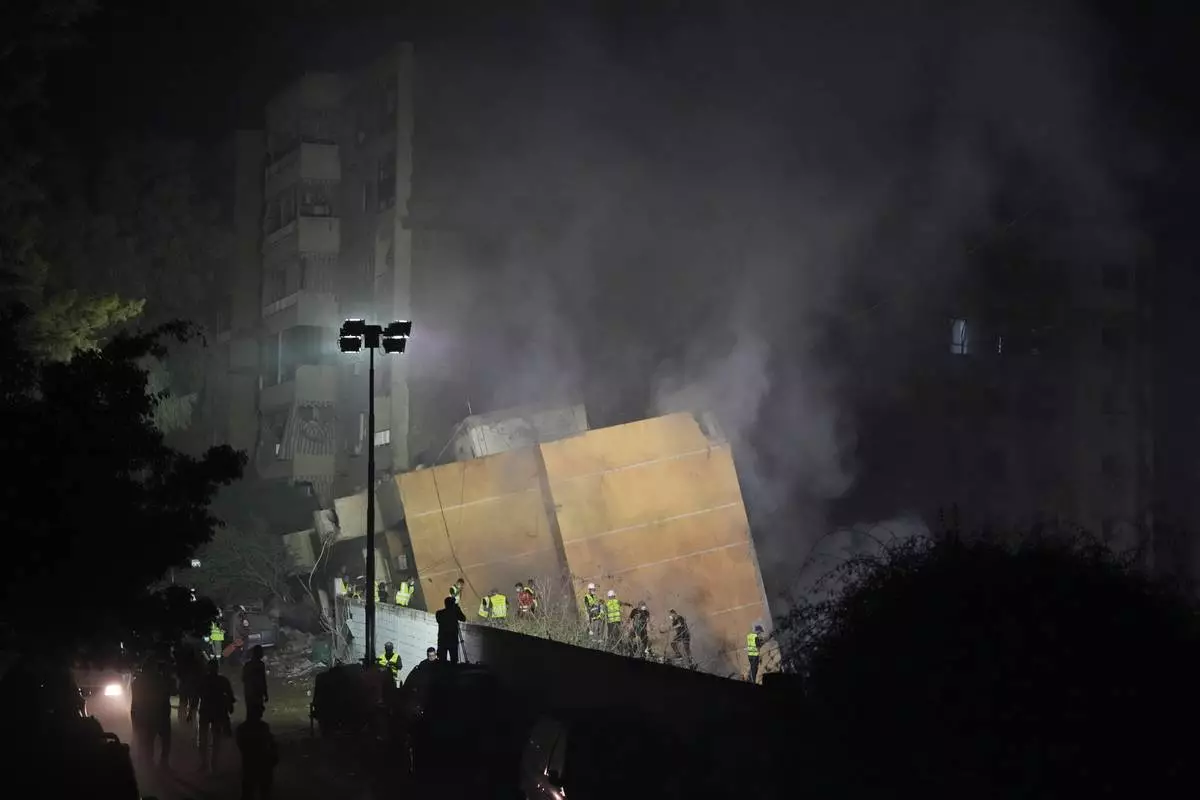
Rescuers arrive at the site of an Israeli airstrike in Beirut's southern suburbs, Friday, Sept. 27, 2024. (AP Photo/Hassan Ammar)
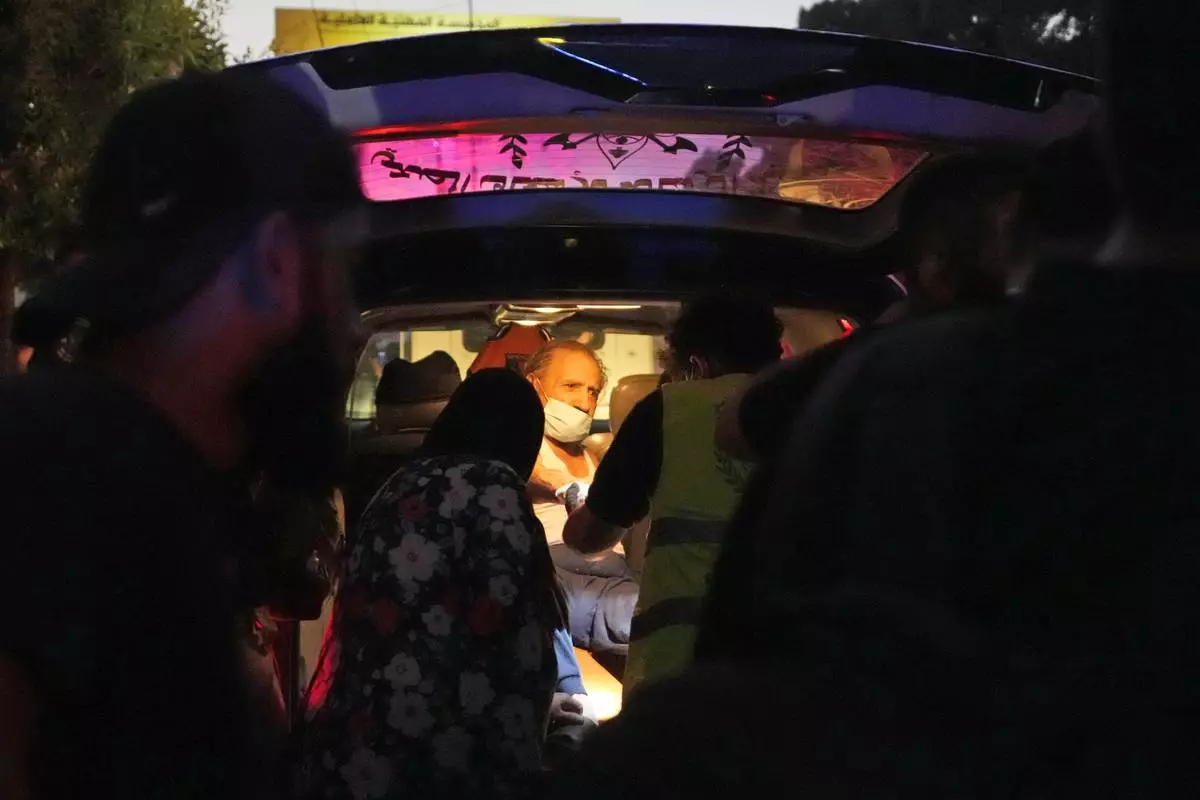
A wounded man sits in an ambulance at the site of an Israeli airstrike in Beirut's southern suburbs, Friday, Sept. 27, 2024. (AP Photo/Hassan Ammar)
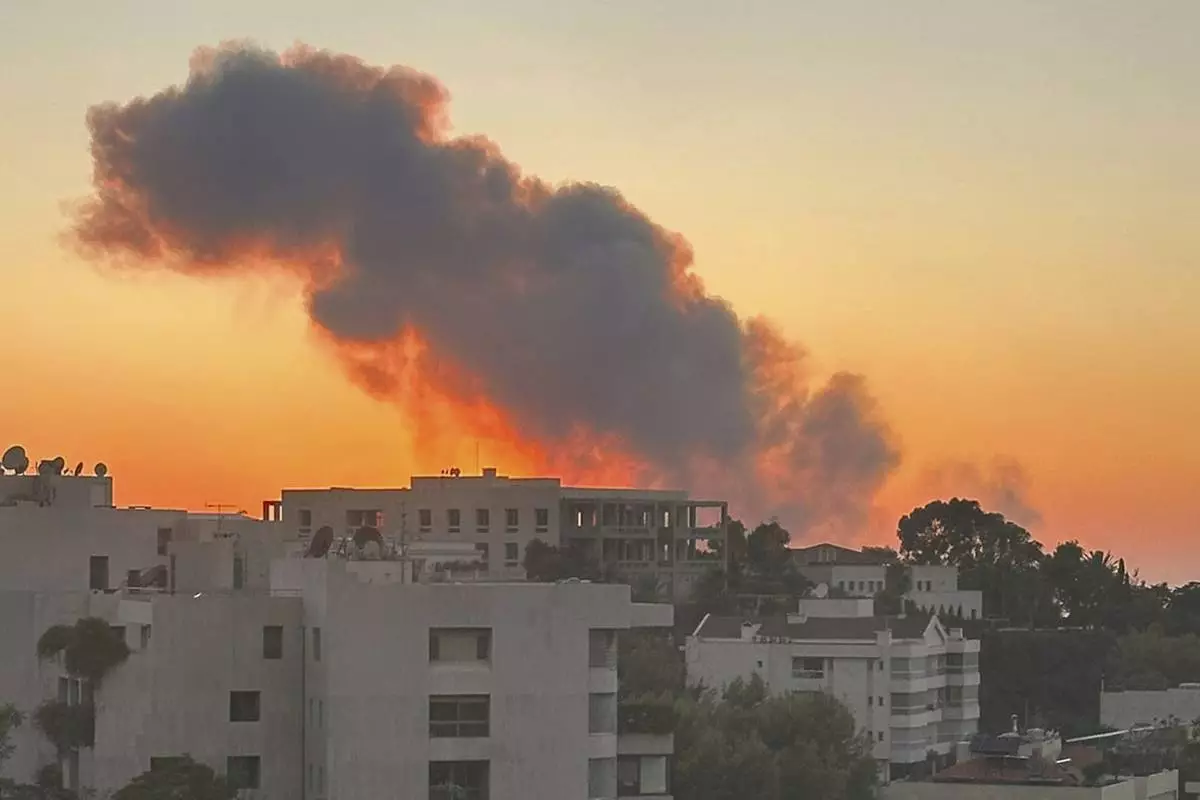
Smoke rises from Israeli airstrikes in Beirut, seen from Baabda, Friday, Sept. 27, 2024. (AP Photo)
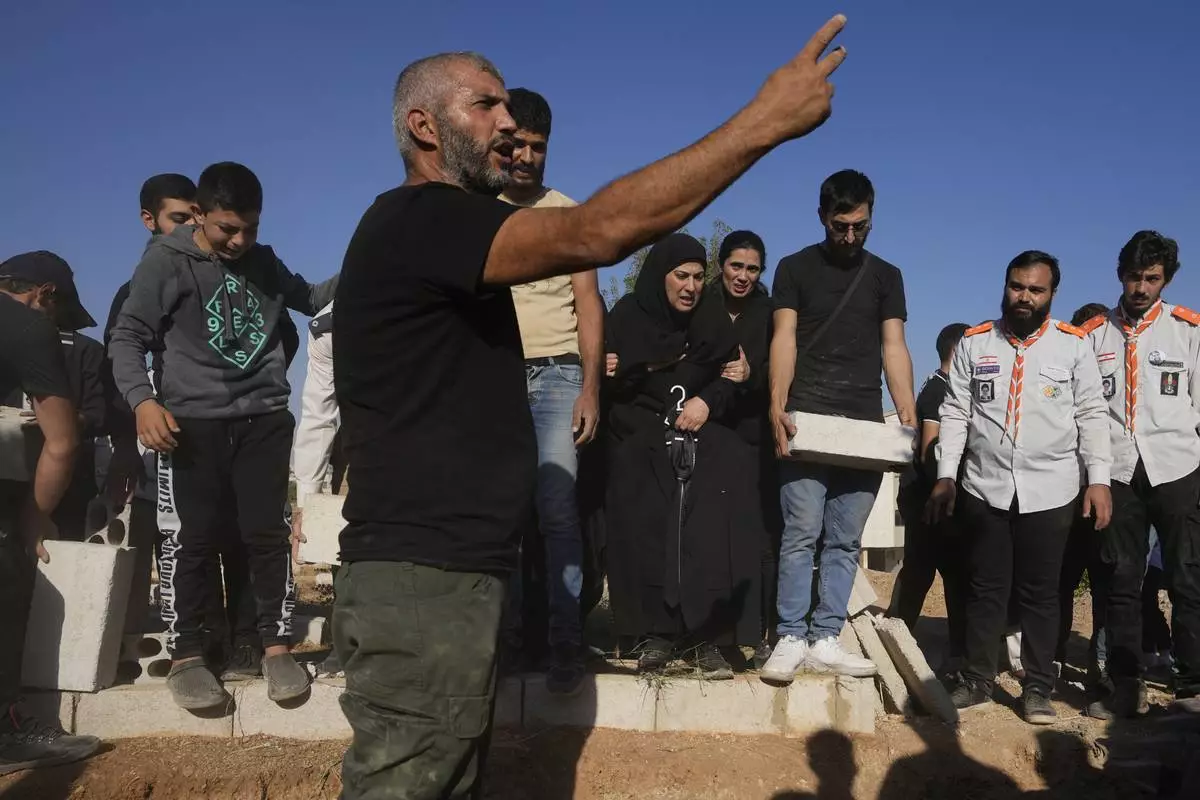
Mourners bury the bodies of their relatives, killed in Israeli airstrikes in the village of Karak, Bekaa Valley, eastern Lebanon, Friday, Sept. 27, 2024. (AP Photo/Hassan Ammar)






